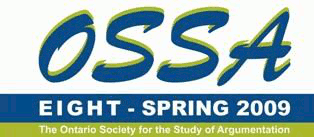
Location
University of Windsor
Document Type
Paper
Start Date
3-6-2009 9:00 AM
End Date
6-6-2009 5:00 PM
Abstract
This study builds upon the ideas of Classical Pragmatists (Peirce, Dewey, James) and Neo-pragmatists (Popper, Quine, Davidson) to suggest that metaphors can best be understood in terms of what they are used to do. What metaphors do, according to Davidson, is redirect our notice so as to effect new understandings. Davidson’s account, thus understood, appears to contradict the conclusions of structuralist accounts in which metaphorical meanings are derived from the supposed cognitive contents of utterances
Creative Commons License

This work is licensed under a Creative Commons Attribution 4.0 International License.
Response to Submission
Philip Rose, Commentary on Wofford
Reader's Reactions
Philip Rose, Commentary on Wofford (June 2009)
Radical Interpretation of Metaphor in Rhetorical Discourse: A pragmatic account
University of Windsor
This study builds upon the ideas of Classical Pragmatists (Peirce, Dewey, James) and Neo-pragmatists (Popper, Quine, Davidson) to suggest that metaphors can best be understood in terms of what they are used to do. What metaphors do, according to Davidson, is redirect our notice so as to effect new understandings. Davidson’s account, thus understood, appears to contradict the conclusions of structuralist accounts in which metaphorical meanings are derived from the supposed cognitive contents of utterances

